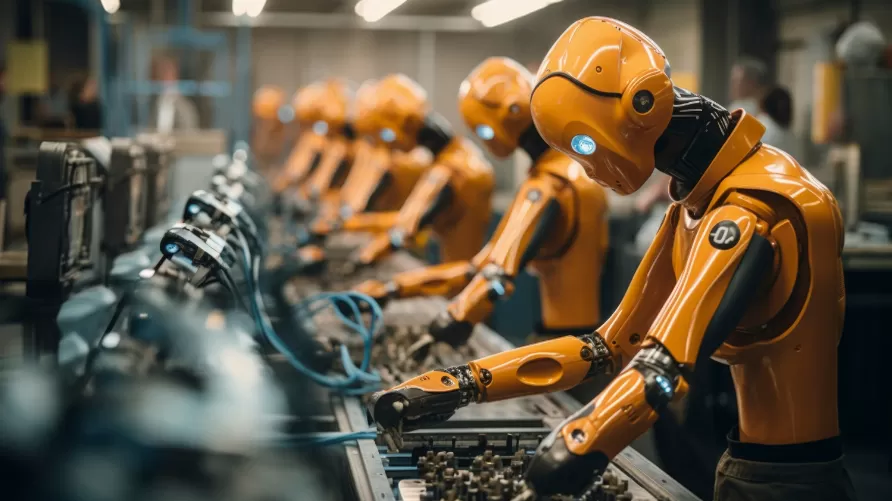Waste management has become increasingly critical in recent years as urban populations swell and consumption rates rise. Traditional methods of waste disposal, often characterized by inefficiency and environmental harm, are no longer viable solutions. Enter the era of intelligent waste management, where technology transforms how we handle trash.
This revolution is about managing waste more efficiently and creating sustainable urban environments. One city that exemplifies this shift is Nashville, where innovative approaches to waste management are making a significant impact. For those interested in Nashville dumpster rental, the advancements are promising and inspiring.

The Revolution of Waste Management through Technology
Technology has brought about a new way of dealing with waste. This is by the use of artificially intelligent machines. They have been created to solve most, if not every, of the problems that existed before concerning waste management, according to traditional methods. IoT devices, data analysis tools as well as automation are just but a few examples of such devices employed in this field, and they all work together, making it possible for people to handle waste more efficiently than ever while still taking care not to harm our environment in any way shape or form.
IoT and Smart Bins
One breakthrough made towards achieving sustainable cities with clean environments is implementing intelligent waste systems using internet-connected sensors called ‘Smart Bins.’ In real-time, these bins can monitor the fill levels of garbage containers located within various points of a given city or town.
The information obtained from these sensors is then transmitted back to central points, where it can be used to devise more efficient and environmentally friendly collection schedules. As a result of this innovation, cities like Nashville have been able to cut down on costs associated with running their waste collection services while curbing pollution caused by such activities.
In Nashville alone, over a million dollars per year was saved through a reduction in the number of trips made by garbage trucks, which would otherwise have been unnecessary if only traditional methods had been used, thereby reducing fuel consumption rates as well emissions into the atmosphere, besides ensuring better service delivery systems among residents who now enjoy cleaner environments due to improved efficiency levels associated with managing refuse within these areas.
Using Predictive Waste Management
Also known as predictive waste management, data analytics is crucial in modern waste disposal systems. By studying how different regions produce and get rid of their rubbish over time, it becomes possible for local authorities to plan when it comes to resource allocation or coming up with future strategies aimed at handling solid domestic wastes within municipalities more effectively than ever before; hence saving not only money but also time among other valuable resources that can be redirected towards socio-economic development projects which have a direct bearing on people’s livelihoods, especially those living in poverty-stricken areas characterized by high population densities coupled with limited land availability for agricultural activities necessary ensuring food security through production.
Data analytics in Nashville has significantly transformed waste management. The city can now quickly recognize high waste generation areas and distribute resources appropriately using this information. Efficiency is improved through a proactive approach, which also aids in developing long-term strategies for handling waste.
Waste Sorting through Robotics Plus Automation
Robotics and automation have revolutionized waste sorting processes, making them quicker and more precise. Automatic sorting machines utilize advanced algorithms and sensors to identify different types of waste materials for separation. This technology minimizes manual work, which is expensive and prone to errors.
Nashville’s waste management facilities integrated robotic sortation systems to handle large volumes of waste the city’s population produces. Recyclable materials are efficiently sorted out from non-recyclables much faster than human labor can achieve through these systems. In addition to increasing recycling rates, this also reduces landfilling.
Technologies that turn waste into energy
Another smart approach to managing waste is converting it into usable energy sources such as electricity or fuel. Waste-to-energy (WTE) technologies use different processes, such as incineration and anaerobic digestion, among others. This not only decreases the amount of garbage but also provides renewable power.
Nashville has been at the forefront of adopting waste-to-energy technologies. By converting organic waste into biogas through anaerobic digestion, the city produces a significant amount of renewable energy. This energy is used to power waste management facilities, creating a closed-loop system that enhances sustainability.
Conclusion
Integrating technology into waste management systems is revolutionizing how cities handle trash. These advancements, from IoT-enabled smart bins and data analytics to robotics and waste-to-energy technologies, are creating more efficient, cost-effective, and environmentally friendly waste management solutions. Nashville is a prime example of how smart waste management can significantly improve urban sustainability.
As cities worldwide continue to grapple with the challenges of waste management, adopting innovative technologies offers a promising path forward. By embracing these innovations, we can create cleaner, more sustainable urban environments for future generations. The journey of sustainable waste management in Nashville is a testament to the transformative power of technology in addressing one of the most pressing issues of our time.




